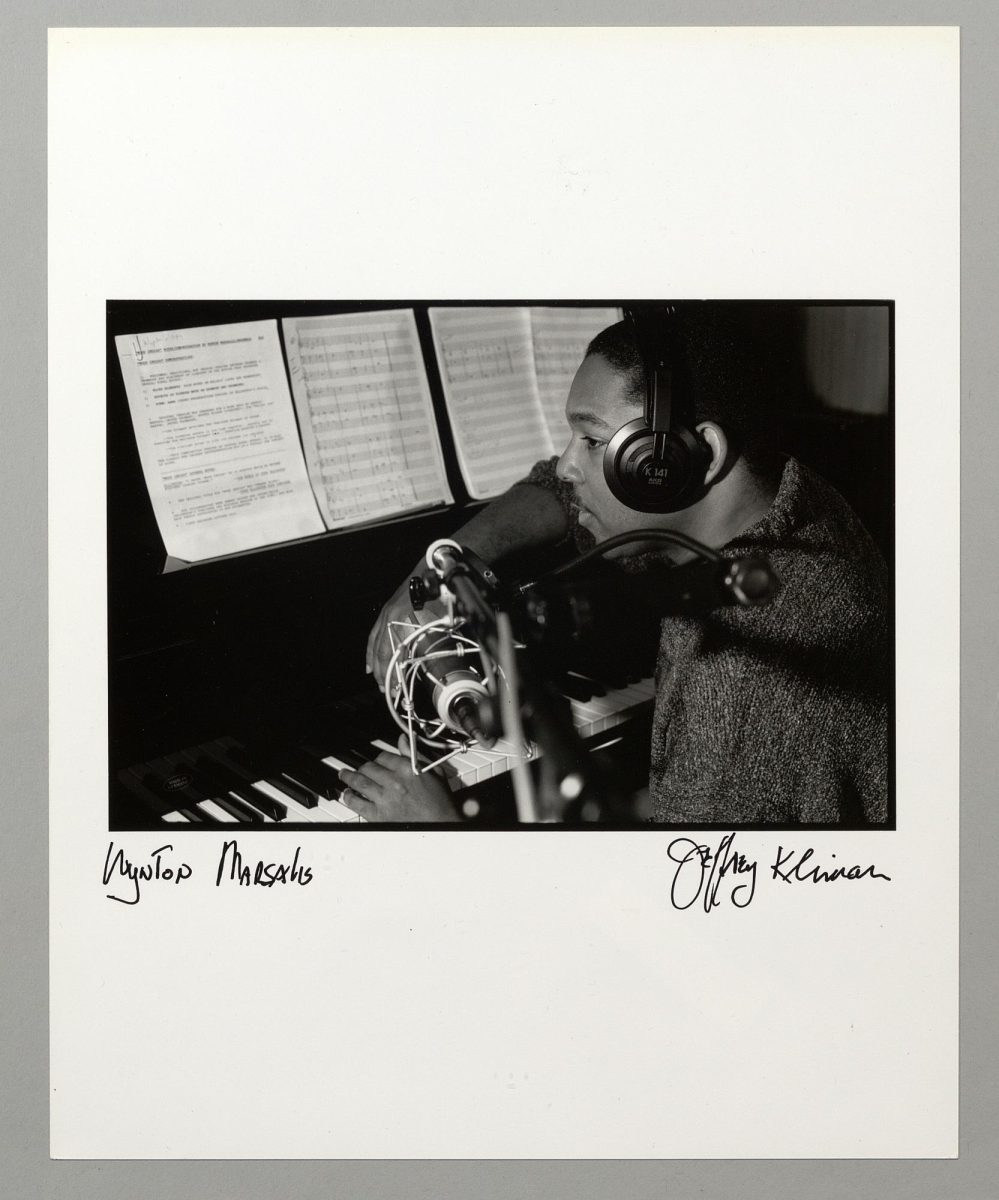Smooth sounds and vivid photographs of jazz music greeted the Pitt community with open arms during Pitt’s 53rd annual Jazz Seminar this past week.
The Jazz Studies program — within Pitt’s Department of Music — hosted the weeklong Jazz Seminar from Oct. 30 to Nov. 4. The schedule of this year’s event included artist workshops, a student concert, film screenings and a final concert.
The seminar held a number of events, including a performance by the Pitt Jazz Ensemble, two film screenings showing “A Great Day in Harlem” (1994) and “Hargrove” (2002). The seminar also featured a visiting scholar series and numerous artist seminars that covered a range of topics, including a lecture that focused on retheorizing spontaneity between jazz, philosophy and Toni Morrison’s art.
AJ Johnson, interim director of the Jazz Studies program, said planning the series of events took a lot of time and thought.
“Way back in February, I started lining up musicians because their schedules are very busy. Once I had a core group to build around, I fleshed out the ensemble,” Johnson said. “We also had to find a place to have it, because Carnegie Music Hall is under some reconstruction. We had had the event there for about 50 straight years before the pandemic broke out.”
Johnson said he attended these events as a student, long before he was involved in orchestrating them.
“I have participated in planning these events for maybe the last three or four years,” Johnson said. “But prior to that I was an undergrad at Carnegie Mellon, and I went to three of these. I went to the seventh, eighth and ninth jazz seminars.”
Despite its long history, Johnson said the sentiments of the seminar — namely its effort to bring musicians together in a collaborative space — have remained almost completely unchanged.
“It’s the same kind of formula of bringing musicians together who maybe don’t necessarily play together all the time,” Johnson said. “They always surround a theme. Always back then, the character of the musicians dictated the character of the concert. This year, I have really built the thing around drummer Lenny White and bassist Buster Williams.”
Galen Lovejoy, a senior history and philosophy major and president of the Jazz Ensemble, said the seminars are an important part of upholding the tradition of jazz and spreading knowledge about the genre.
“Pittsburgh has been a very important place for the development of jazz as an art form. I think it is important the University of Pittsburgh has taken some initiative to uphold the history and make sure that tradition continues, both through student organizations like the Jazz Ensemble and through other professional venues,” Lovejoy said. “The Jazz Festival has invited a lot of professional jazz musicians to play at different concerts and venues around Pittsburgh and I think continuing that tradition is important.”
Lovejoy said he had a great time performing in the festival’s opening act last Tuesday in the William Pitt Union.
“I thought the experience was great. I felt that everyone in the band really did put [in] lot of effort over the past couple months during the semester to get all the music ready. I think everyone had a great time performing and I think the audience enjoyed it as well. It was actually bigger than most years,” Lovejoy said. “I was pleasantly surprised by the amount of people that came out. I noticed there were some students that were just studying in the WPU also trickling in, and that was also nice to see.”
Jeffrey Kliman, a jazz photographer who has been taking pictures since the 1960s, said he very much enjoyed teaching one of the seminars and sharing his experience.
“It was a knockout of five stars. I had a great time, I really did,” Kliman said. “Surely I will come back for a second show.”
Kliman said he fell in love with jazz at a young age, and it’s still an integral part of his life.
“It’s music. You can’t live without music. How can you not listen to music? It’s something I discovered early in my life when I was in high school. I live it. I miss the jazz scene, I’m off the scene now — 13 years, so I’m away from all of it,” Kliman said. “And I miss the jazz musicians. Their humor is different, their style is over the top. They’re cool and I get the soft and willies when I hear jazz music.”
Johnson said jazz may not seem relevant to young people today, but he hopes that events like the Jazz Seminar encourage students to explore it.
“Jazz is always going to be a useful thing for students to get involved in. I recognize that in the world of pop music, jazz hasn’t been promoted as much,” Johnson said. “Students don’t hear jazz as much. But you know, a certain group of students will come to love and embrace jazz as they get older, And if we play a part in that, I’ll be happy.”
Johnson said the value of jazz goes way beyond musical appreciation.
“Jazz is one of our cultural jewels as Americans. But beyond that, jazz is always speaking truth to power. Jazz is, in the critical times of our crazy political upheaval, jazz is always the truth,” Johnson said. “People from all ways of life, all political beats, can lock arms around jazz. Jazz has got in its heart the blues and improvisation, and both of these speak to how you live life and how you deal with adversity in life.”


